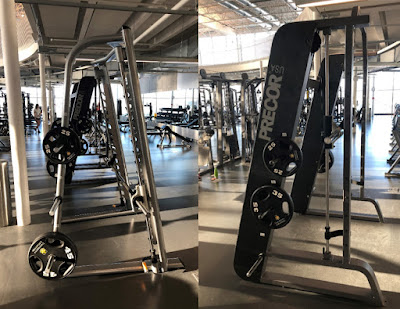Fitness Myth Busters: 5 Common Workout Misconceptions
by Adam Toffan, M.Sc, NSCA-CSCS, CSEP-CPT Assistant Fitness Training and Assessment Coordinator, Recreation Services at the University of Manitoba
There's a lot of fitness information out there, and it's easier than ever to access. Some of it is good and some of it, not so much. So, today I'd like to set the record straight on a handful of fitness topics that are often misunderstood or misrepresented in our first edition of Fitness Myth Busters!
Myth #1: Doing crunches gives you a six-pack/burns belly fat
As people gain unwanted weight, it usually ends up around the waist which is an area many people fixate on when trying to burn fat. In response to this, many sources promote short core workouts. This is one of the biggest myths in the industry. You cannot target fat loss. Using a specific muscle group does not burn fat from that area. To burn fat around the waist, you need a change in overall body composition. This is achieved through a combination of aerobic exercise, strength training and core exercises; all combined with a healthy and balanced diet.Myth #2: If women lift weights they will get "bulky"
One of the biggest deterrents from lifting heavy for women is the fear of getting too bulky. The reason men add bulk when lifting weights is testosterone. Since women produce much less testosterone, they don't tend to build muscle the same way. Women who've developed a lot of muscle require strict diets and intensive training, likely combined with supplementation. So chances are if you're a female and you start lifting, you won't bulk up. In fact, you're more likely to get lean and muscular. If that's your goal, have at it!Myth #3: Muscle turns to fat when you stop lifting weights
A common myth is that training converts fat to muscle and stopping that training reverts it back to fat. Fat and muscle are two separate substances, and they co-exist. The change in body composition is the gain or reduction of each of these. When you stop training, the difference in body composition is not a conversion. Instead, your muscles atrophy (shrink) from lack of use. Also, when we stop training, we often don’t adjust our diet for reduced caloric needs. This combined with slowed metabolism from muscle loss often results in gaining of fat.Myth #4: Training in the “fat burning zone” helps you lose weight
This myth is based on some scientific truth. There is, in fact, an aerobic zone where a more significant percentage of calories burnt come from fat. Lipids are used as a primary energy source at lower intensities because the need for energy isn’t as high, so the more quickly utilized carbohydrates aren’t needed. The problem with the fat burning zone is that the lower intensity results in fewer calories burnt in a workout which makes it hard to initiate or maintain weight loss. The overall goal should be to elevate the heart rate and burn more calories. While a smaller percentage of calories consumed will come from fat, you will burn much more total calories overall. An analogy I got from a former colleague was that it's like taking a smaller piece of a much bigger pie. The percentage of the total is lower but the overall amount is still greater!Myth #5: You should stretch before exercise
This is another partial truth. Warming up is important because it prepares the body for the demands of a workout by increasing temperature and heart rate as well as increasing range of motion. However, the most beneficial type of stretching before an exercise is dynamic stretching. Dynamic stretches involve large muscle groups going through an active range of motion. Sitting in a static stretch makes it hard to increase core body temperature and is best suited for post-exercise with the focus on improving flexibility. There is also some research that shows static stretching reduces muscular power so it may harm your workout.There will always be myths and misinformation. As you look for fitness advice, make sure you only seek out reputable sources. The general rule, as with most things, if it sounds too good to be true, it probably is. Be sure the author’s credentials and scientific evidence back up any information before taking it as truth.




Hello your content is sharing great information. I have gone through your blog. The information you have given are really informative. Thank you so much for sharing your journey, Nutrition health services in birmingham was an amazing article, I will come back to read others. I just wanted to say thank you!I really appreciate your time effort and information.
ReplyDeleteI need to know which service is the best from the ones listed on the site?
ReplyDeleteKegel Exercises